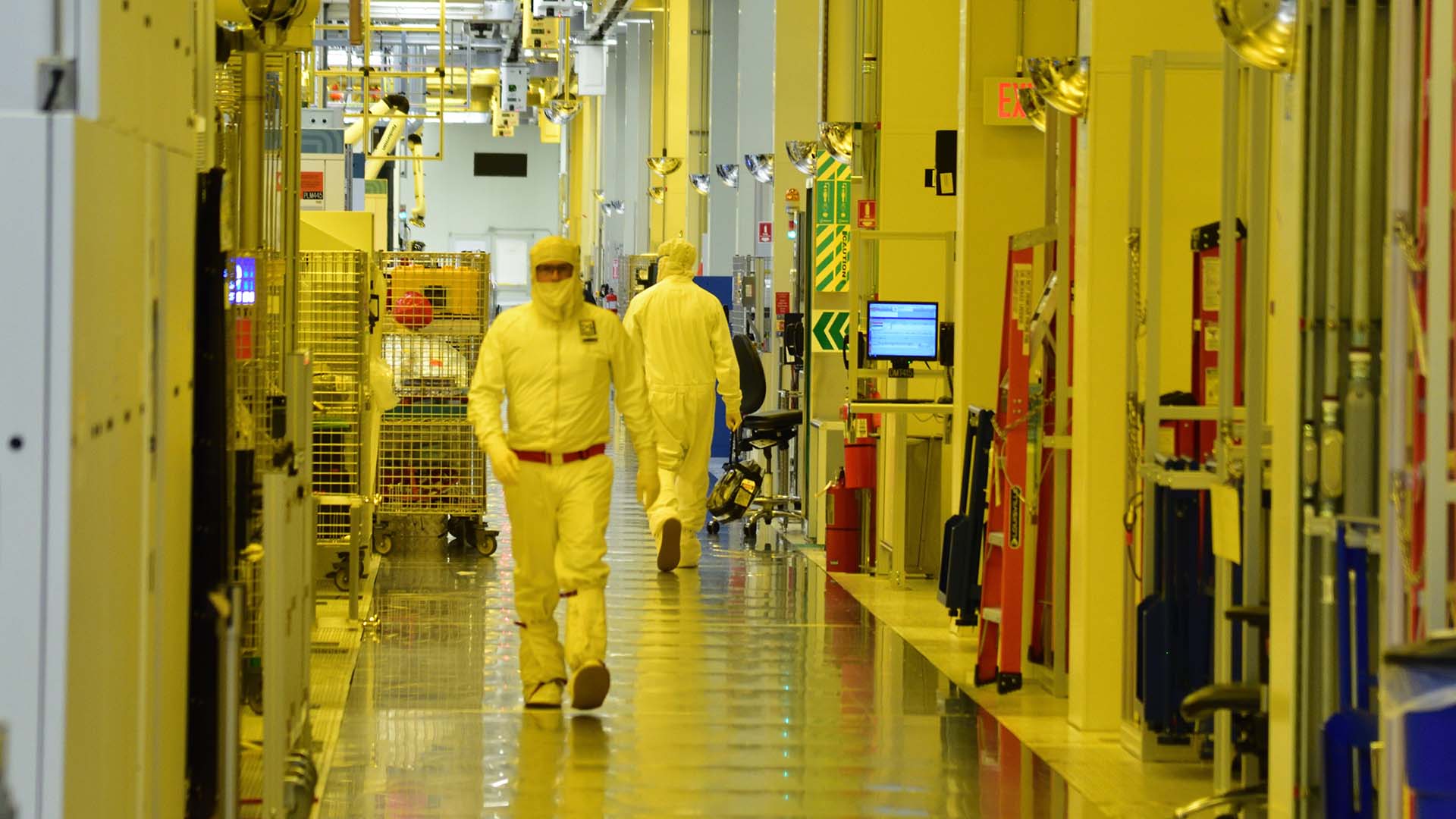The US puts an end to any plans Intel may have to make more chips in China
Intel will be banned from building fabs in China for a decade if it accepts any CHIPS Act cash. Which it absolutely will.

Update 8/9/22: This story previously referenced Intel's fab in Dalian, China, which has since been sold to SK Hynix. Intel continues to operate assembly plants in Chengdu, China.
The US is banning some major US chipmaking companies from building "advanced technology facilities'' in China, the Biden administration has announced.
The ban will apply to any company that receives funding as a part of the CHIPS and Science Act, which was approved by the US Congress in August, and will last for 10 years. This act aims to increase domestic manufacturing of semiconductors with an influx of $50B across companies that apply. More than half of those funds are headed to cutting-edge facilities for today's top chips, though a smaller amount will help to ease demand for older chips and into research.
Generally, it's about shifting what is currently a very Asia-focused manufacturing hub slightly more westward. Though banning any company from exploring options in China is certainly one other way of going about that.
One major company known to PC gamers everywhere and set to take a large sum of cash from the CHIPS Act is Intel. The company's CEO Pat Gelsinger was fiercely campaigning for the act and Intel is set to be one of the largest beneficiaries of it, considering the company's massive domestic and international chip manufacturing facilities.
Though only a handful of many locations owned and operated by Intel globally, Intel has assembly plants in Chengdu, China, and was very recently considering further significant expansion in the area—a move reportedly discouraged by the White House. Now it seems the White House may have found an even stronger way to keep Intel's investment out of China, with this recent proviso for receiving CHIPS Act funds effectively putting an end to that plan or anything like it.

Best CPU for gaming: The top chips from Intel and AMD
Best gaming motherboard: The right boards
Best graphics card: Your perfect pixel-pusher awaits
Best SSD for gaming: Get into the game ahead of the rest
Memory manufacturer Micron may also have to side-line any further plans in China if it hopes to net a lump sum from the US government. It runs an assembly and test facility in Xi'an China, first opened in 2007. Though the US government has specified that any facility building older chips can be operated in the area to serve the local region.
The biggest gaming news, reviews and hardware deals
Keep up to date with the most important stories and the best deals, as picked by the PC Gamer team.
Both Intel and Micron have announced plans to expand their US-based operations, however, and Intel is also building and expanding in the EU.
This ban won't necessarily affect companies such as Nvidia or AMD directly, as they rely on third parties to build their chips for them. However, neither has managed to dodge the eye of the US government entirely: both has been told to stop sending high-end datacentre GPUs to China and Russia.

Jacob earned his first byline writing for his own tech blog. From there, he graduated to professionally breaking things as hardware writer at PCGamesN, and would go on to run the team as hardware editor. He joined PC Gamer's top staff as senior hardware editor before becoming managing editor of the hardware team, and you'll now find him reporting on the latest developments in the technology and gaming industries and testing the newest PC components.

